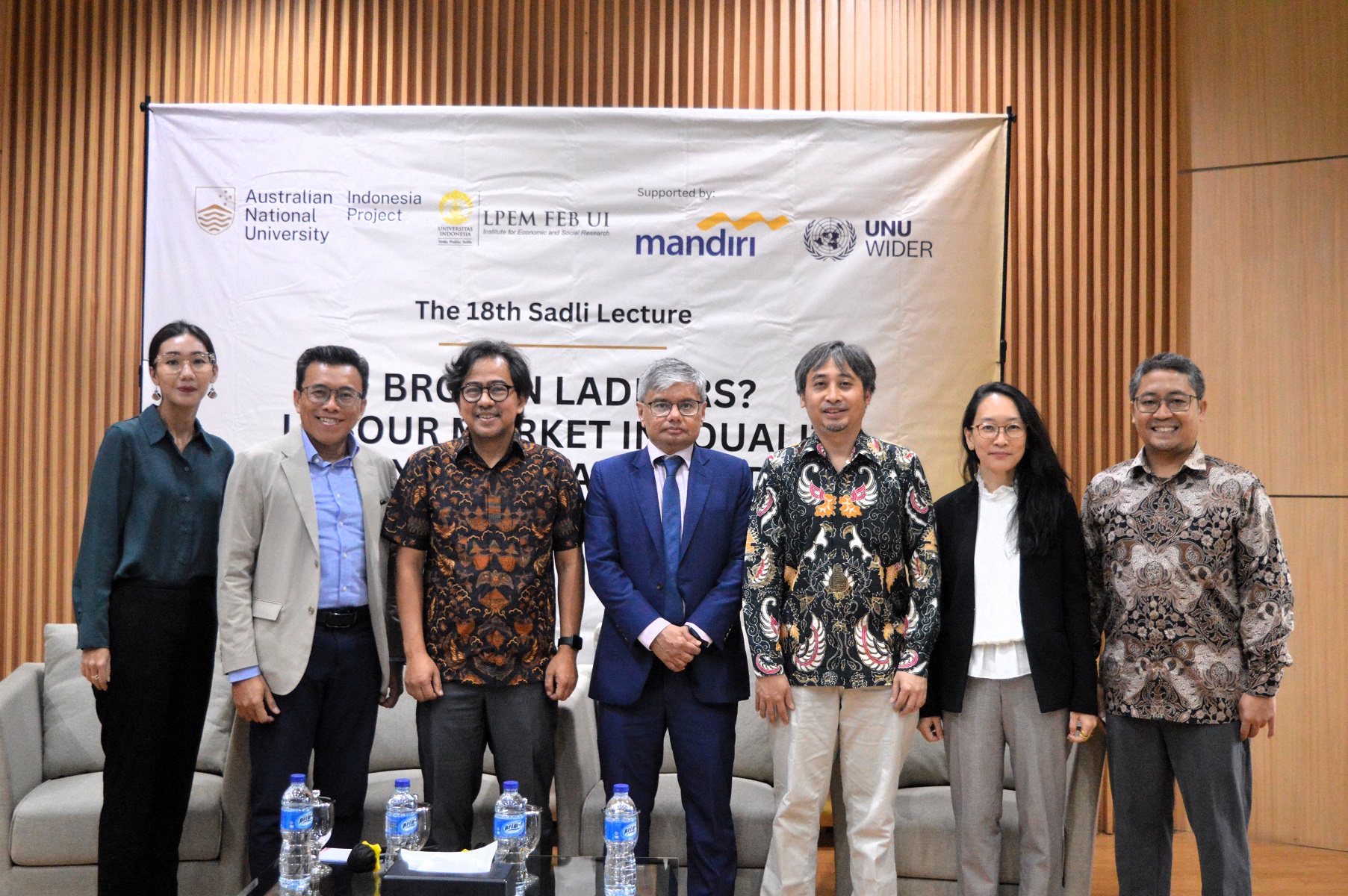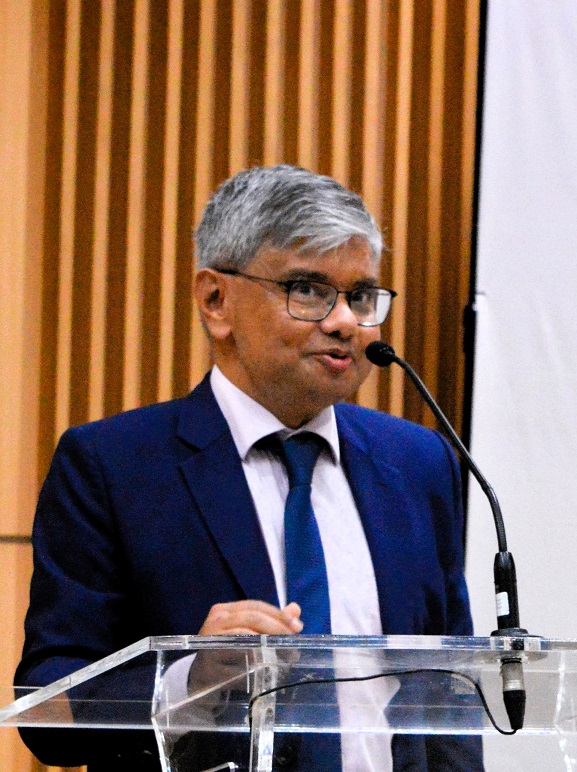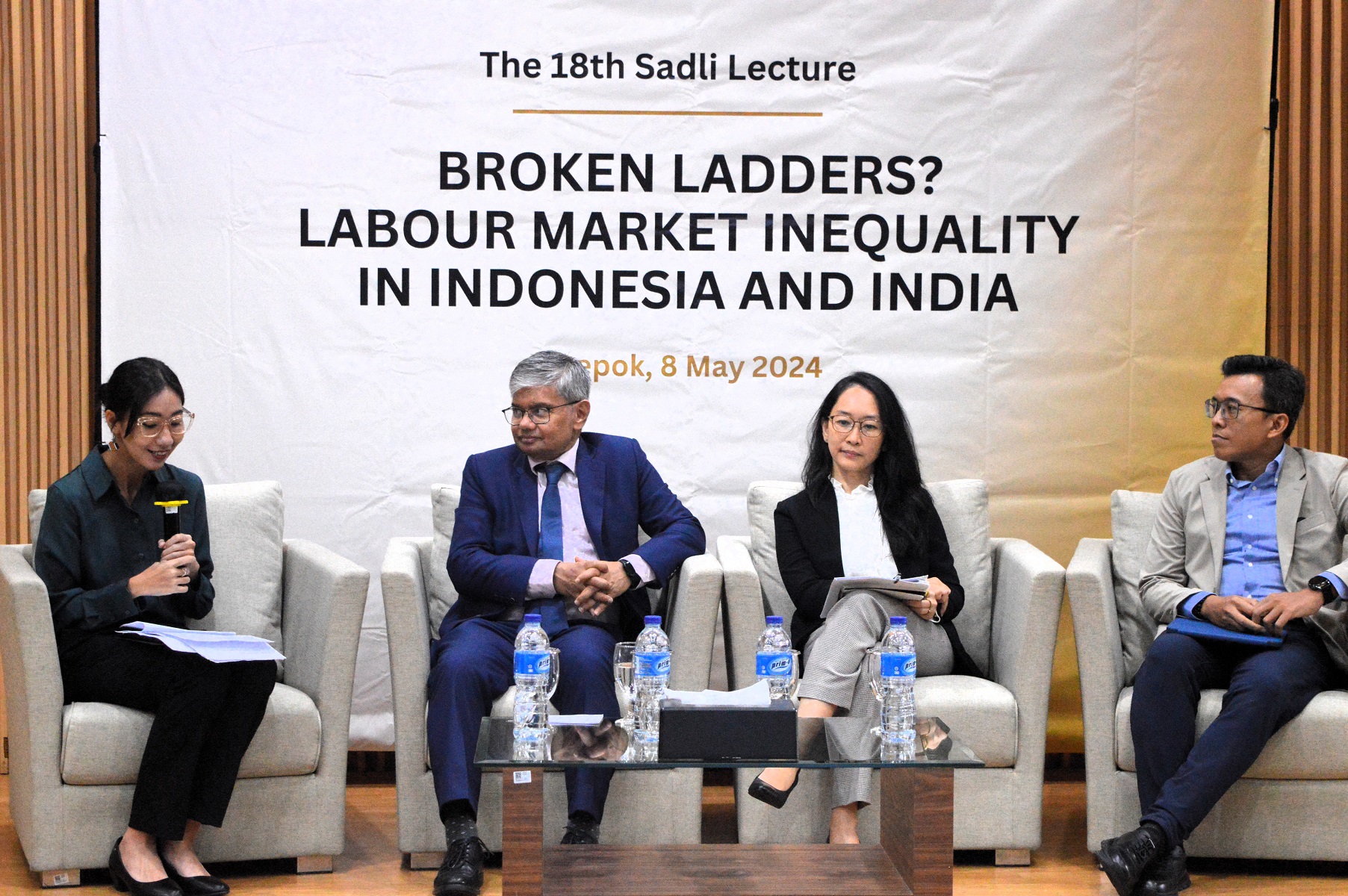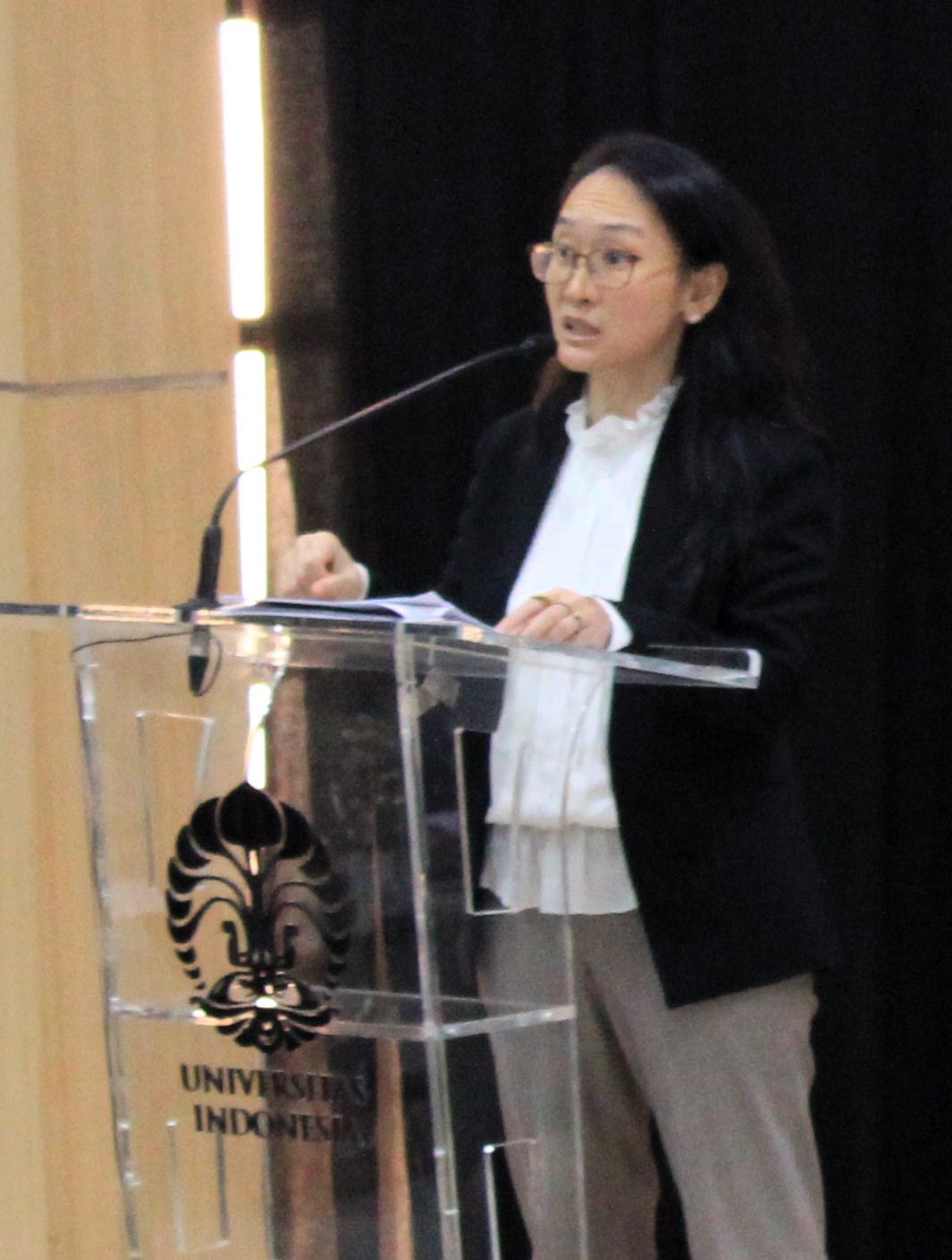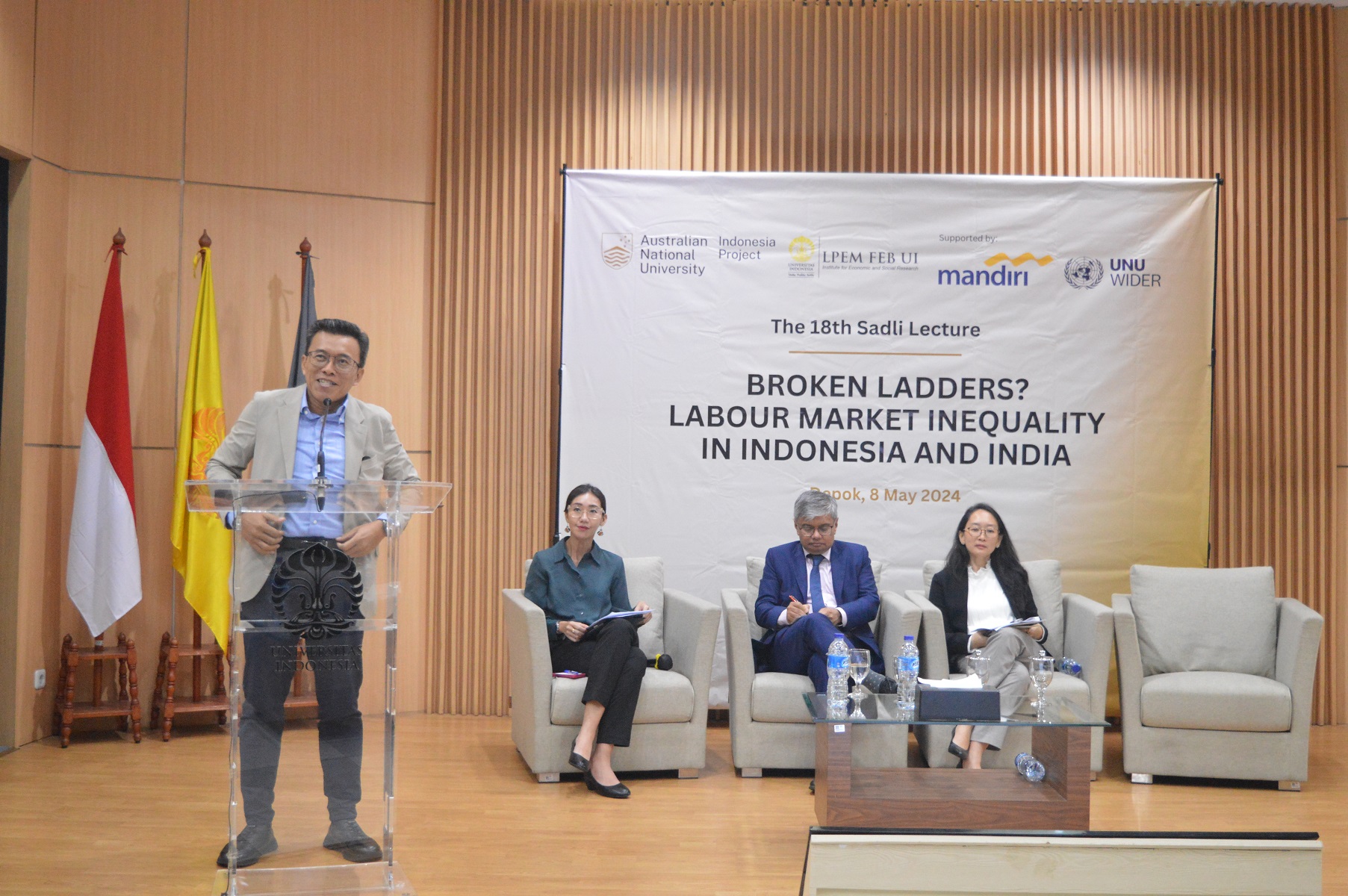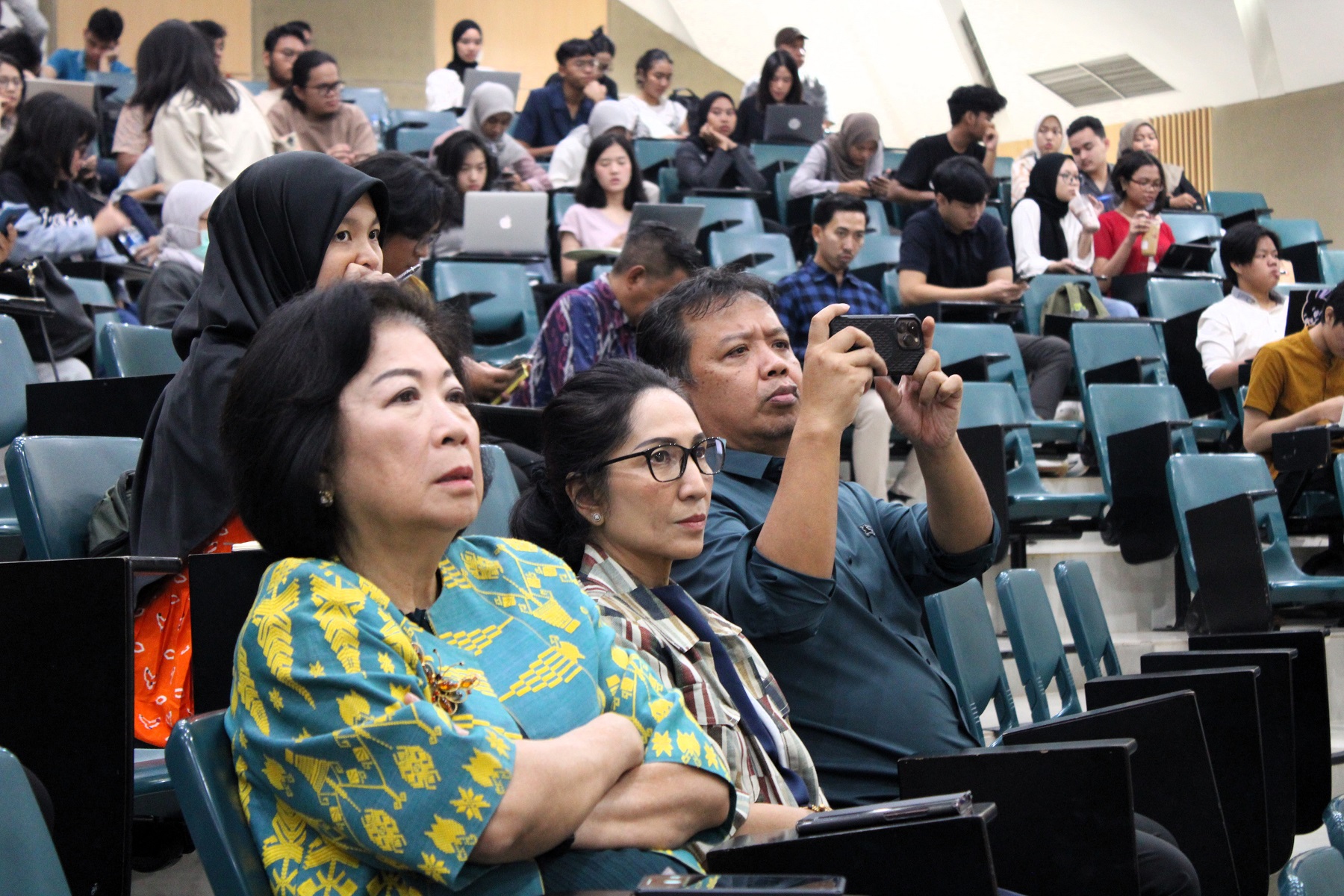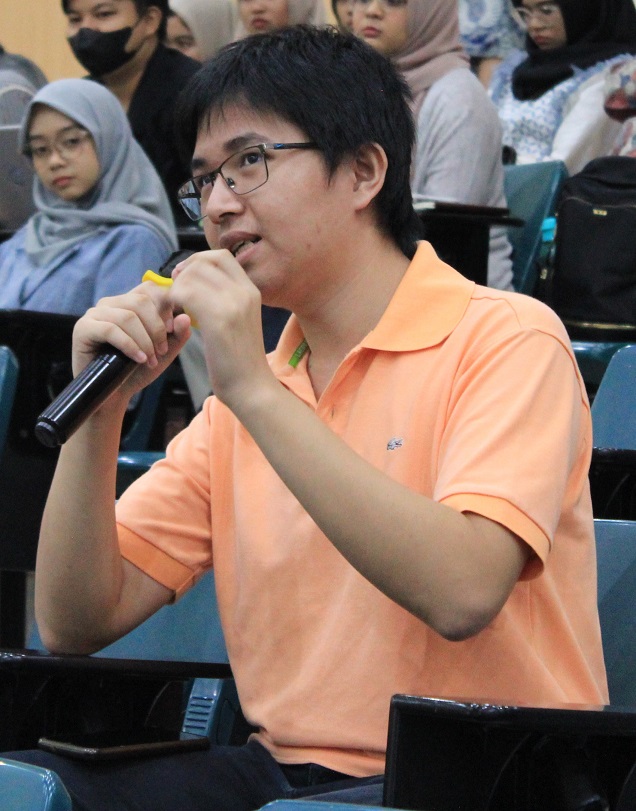The annual Sadli Lecture is a collaboration between the Institute for Economic and Social Research (Universitas Indonesia) and the Indonesia Project (The Australian National University). Named in honour of the late Professor Mohammad Sadli and (since 2023) Professor Saparinah Sadli, the series aims to broaden understanding of, and stimulate debate on, key economic policy challenges faced by Indonesia. Since 2007, the annual Lecture is based on a commissioned paper on Indonesia in comparative economic perspective for the Bulletin of Indonesian Economic Studies.
The Lecture was opened by Associate Professor Firman Witoelar (ANU Indonesia Project) who reiterated the origins of the Lecture as a way to honour Mohammad Sadli, former Head of LPEM and former founding Head of the Indonesia Foreign Investment Board (BKPM), former Minister of Labor, and Minister of Mines. He was a prolific commentator on public policy in Indonesia. Since then, the series have become one of the longest-standing academic event in Indonesia (if not the longest). LPEM FEB UI and ANU Project thank Bank Mandiri Indonesia for financial support in convening the Lecture at FEB UI campus in Depok.
Keynote remarks were provided by Dr Teguh Dartanto, Dean of Faculty of Economics and Business, Universitas Indonesia (FEB UI). In his remarks, Dr Dartanto expressed gratitude for the support received by Professor Saparinah Sadli and the Sadli Family in the form of endowment fund to support research mobility for FEB UI academics.
Further, Dr Dartanto stress the urgent need for policies that not only create jobs but also improve the quality of the jobs itself. The “broken ladder” as described by Kunal Sen’s research where the step between lower tier and upper tier jobs are broken or missing, making upward mobility a challenge is influenced by, amongst others, education and gender. The insight from this research highlights the urgent need for policies to address job mobility, including the critical role of our education institutions in building a resilient workforce.
Professor Kunal Sen then delivered his lecture entitled Broken ladders? Labor market inequality in Indonesia and India, based on a commissioned paper on Indonesia in comparative economic perspective for the Bulletin of Indonesian Economic Studies. As globalization and technological advancements reshape the contours of economies worldwide, understanding the nuances of labor market structures becomes paramount. Professor Sen’s paper offers insights gleaned from a rigorous examination of the labor landscapes of Indonesia and India, nations with a large labor force. The paper is available to download as an UNU-WIDER working paper (click here to download).
- Professor Sen highlighted the diverse nature of informal work. Informal work often acts as a residual employment option for marginalized workers and a launching pad for household enterprises. Informal workers can be divided into two groups: lower-tier informal workers, engaged in subsistence activities and casual labor, and upper-tier informal workers, who are entrepreneurs with the potential to formalize and workers with de facto benefits but no legal protection.
- Since 1966, Indonesia has followed orthodox economic management, becoming a major exporter of labor-intensive goods by the early 1980s. In contrast, India transitioned from a command and control policy regime to economic reforms in 1991, retaining stringent labor laws and focusing on skill-intensive services rather than labor-intensive manufacturing. Professor Sen used the Job Ladder framework to compare labor markets in Indonesia and India. This framework distinguishes between self-employment and wage-employment and categorizes jobs from the most favored formal positions to the least favored lower-tier informal jobs. Based on this framework, it was found that Indonesia and India share similarities in labor market inequality, with job ladders narrow at the top and wide at the bottom and significant wage disparities across job tiers. Women and less educated workers occupy the lowest positions. However, Indonesia has a higher proportion of formal jobs and a shift from self-employment to wage-employment, a trend not seen in India. Lower-tier informal work is predominantly rural in India, while this is less pronounced in Indonesia.
- The study findings highlight the need for demand-side and supply-side policies to address labor market inequality. Demand-side policies should expand the higher tiers of the job ladder, enabling lower-tier informal workers to transition to formal and upper-tier informal jobs. Investments in secondary and graduate education are crucial for upward mobility. For those unable to climb the job ladder, stronger enforcement of minimum wages and better livelihood opportunities are essential to prevent them from being left behind in economic growth.
Dr Maria Monica Wihardja (ISEAS-Yusof Ishak Institute) and Dr I Dewa Gede Karma Wisana (Lembaga Demografi, FEB UI) followed with a thorough discussion of the paper. The paper is available to download as an UNU-WIDER working paper (click here to download).
- Dr Wihardja noted that both countries face demographic challenges as their working-age populations begin to shrink, increasing dependency ratios and economic pressure. Despite various economic and industrial policies over the past decades, neither country has created sufficient quality jobs, with high levels of informality persisting. The COVID-19 pandemic exacerbated these challenges, leading to significant employment and income losses, especially among vulnerable groups. She also emphasized the risks and opportunities presented by technological advancements and the reconfiguration of global supply chains. While digital technology investments have boosted productivity, they also risk widening wage gaps and labor market polarization. Dr Wihardja also stressed the importance of labor-intensive industrialization strategies and leveraging global trends, such as the shift away from China, to capture new economic opportunities. Both countries have implemented substantial social assistance programs, but she cautioned that these cannot replace the need for quality job creation. She called for coherent policies to support middle-class stability and sustainable growth, turning global challenges into opportunities for economic development.
- Dr I Dewa Gede Karma Wisana suggested a clearer definition of low-tier and high-tier, as well as formal and informal workers, emphasizing the need for precise terminology to understand the complexities of the labor market. Dr Wisana also discusses the impact of urbanization in Indonesia, noting that the shift from rural to urban areas has influenced labor mobility, with workers increasingly moving across provinces rather than districts for better job opportunities. This trend is particularly evident among those with higher education levels, underscoring the role of education in labor mobility and job access. In addressing employment policies, he underscored the importance of promoting formalization and improving social protections for all workers, particularly those in informal sectors. He advocates for increased investment in vocational training programs to equip workers with the skills needed for high-tier employment opportunities. Additionally, Dr Wisana stresses the need for policies that prioritize inclusivity and address the unique needs of vulnerable groups.
The 18th Sadli Lecture was held on Wednesday, 18 May 2023 at the R. Soeria Atmadja Auditorium, Faculty of Economics and Business Universitas Indonesia in Depok. There were 278 people recorded who attended the Lecture in person. They were not only students and lecturers at Universitas Indonesia, but also other universities in the Greater Jakarta Area. Some notable attendees include Professor Mari Pangestu (Universitas Indonesia), Professors Arief Anshory Yusuf and Zuzy Anna (Universitas Pajajaran), and representatives from government agencies and international organisations such as ILO, The World Bank, The Embassy of India and others. Around 280 people attended the lecture online (on Zoom and YouTube), including His Excellency Sandeep Chakravorty, Ambassador of India to Indonesia & Timor- Leste who lauded the “research of such high caliber & rigour comparing economic indicators of India & Indonesia.”
Photo credits: LPEM FEB UI
Original version in English
Versi Bahasa Indonesia
Versi Bahasa Isyarat Indonesia
